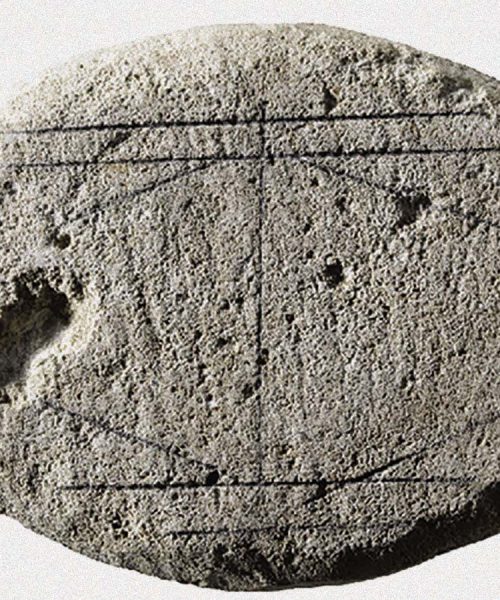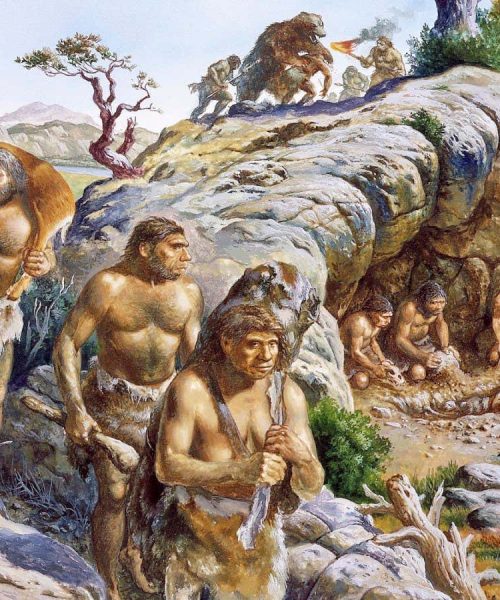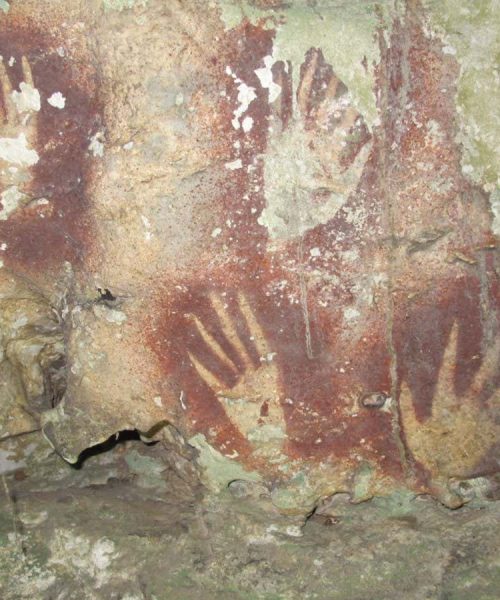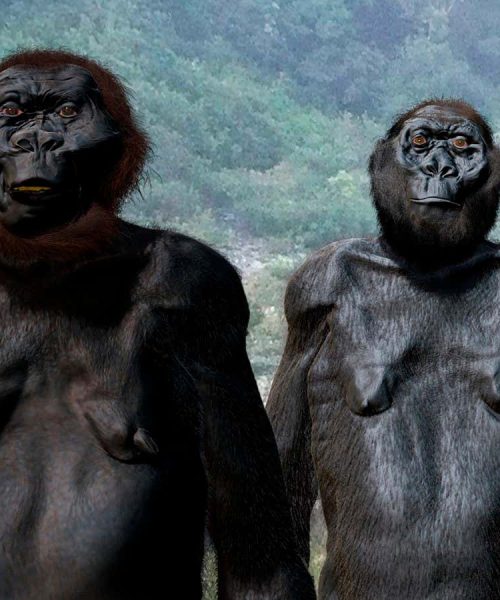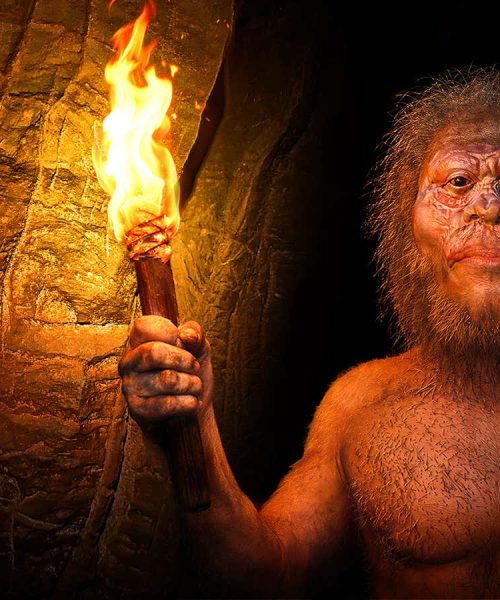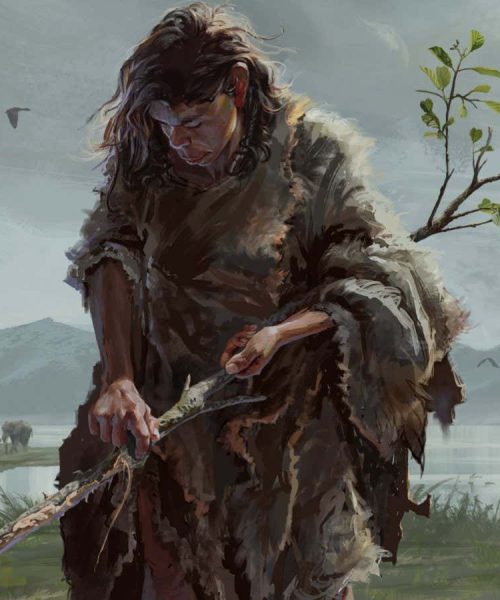
An ancient bronze hand found at Irulegi in northern Spain
Juantxo Egana
Inscriptions found on a 2000-year-old metal hand may be written in a language related to modern-day Basque. If this interpretation is correct, it could help explain the origins of the Basque language – one of the biggest mysteries in linguistics.
However, other linguists say there isn’t enough evidence to link the inscriptions with Basque.
Advertisement
The bronze hand was found in July 2021 on a hilltop called Irulegi in the Pyrenees in northern Spain. Archaeologists had been digging there since 2007, first to uncover a medieval castle and then to explore a much older settlement from the Iron Age.
That settlement was founded between 1500 and 1000 BC. It came under attack, possibly by the Romans, and was abandoned in the first century BC.
The Irulegi hand is a sheet of bronze 14 centimetres long, 12.8 cm wide and just 0.1 cm thick, with a greenish patina. On the back of the hand are four lines of text, which were first scratched in and then re-written by punching dots into the metal.
Most of the words can’t be linked to any known language, but the first word is “sorioneku”. Mattin Aiestaran at the University of the Basque Country in Bilbao, Spain, and his colleagues argue that this is similar to the Basque word zorioneko, which means “of good fortune”. Additionally, the last word is “eráukon”, which they compare to the Basque verb zeraukon.
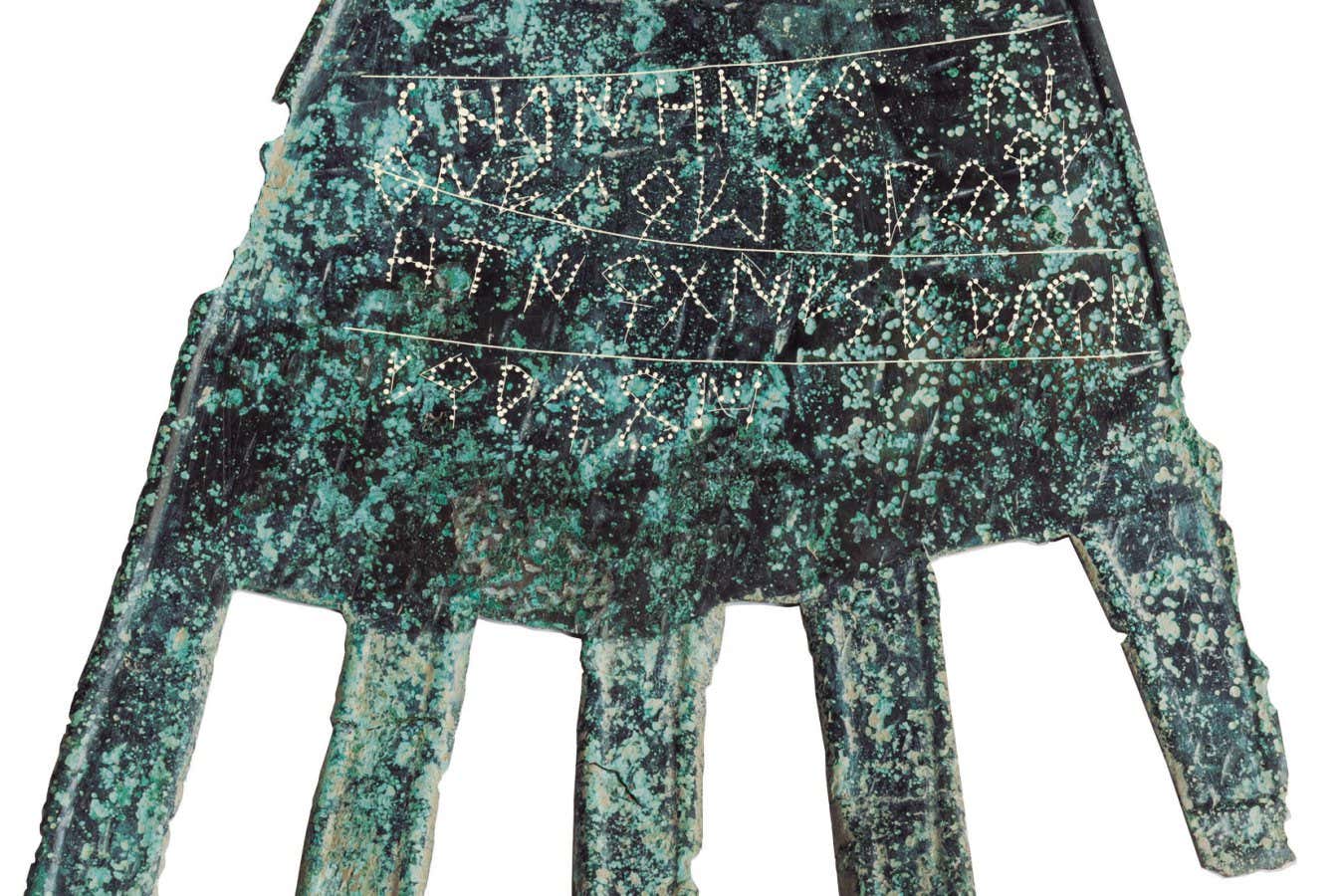
The Irulegi hand, bearing an inscription in a mysterious language
Mattin Aiestaran, et. al.
The hand was probably meant to signify or attract good luck, perhaps by appealing to a deity, says Mikel Edeso Egia at the Aranzadi Science Society in Donostia – also called San Sebastián – in Spain, which supported the excavations.
The researchers further argue that the hand is evidence of languages related to Basque being spoken in northern Spain for 2000 years. Whereas most languages spoken in Europe today belong to the Indo-European language family, Basque doesn’t. “It’s not related to any other language that we know of,” says Edeso Egia. Previous research has tentatively linked Basque to a group of people called the Vascones who, according to classical sources, lived in the Pyrenees.
However, the idea that the inscriptions on the hand are in a language related to Basque isn’t universally accepted. After the hand was first described in a 2022 book, linguists Céline Mounole at the University of Pau and the Adour Region in France and Julen Manterola at the University of the Basque Country in Vitoria-Gasteiz published a critique.
“The evidence is not enough,” says Manterola. This is partly because there are so few words on the Irulegi hand: not enough to properly compare it with known languages, he says.
Furthermore, the link with Basque rests almost solely on the similarity of “sorioneku” and zorioneko. “We can’t really relate any of the other words with historical Basque,” says Mounole.
Even that similarity may be misleading, says Manterola. Similar phrases in Basque have changed in predictable ways over the centuries to reach their current forms, but if “sorioneku” became zorioneko, it must have followed a very different path.
“We are hoping that more inscriptions will appear,” says Mounole. “In this case, we would be able to know more about this language and its possible relation with the Basque language.”
Topics:
